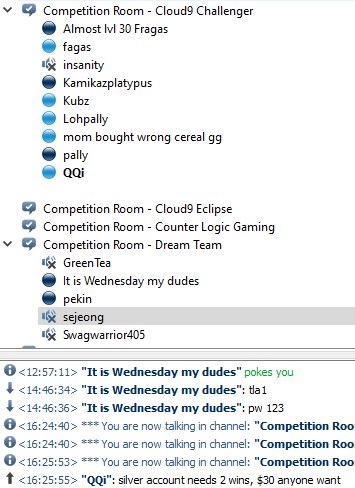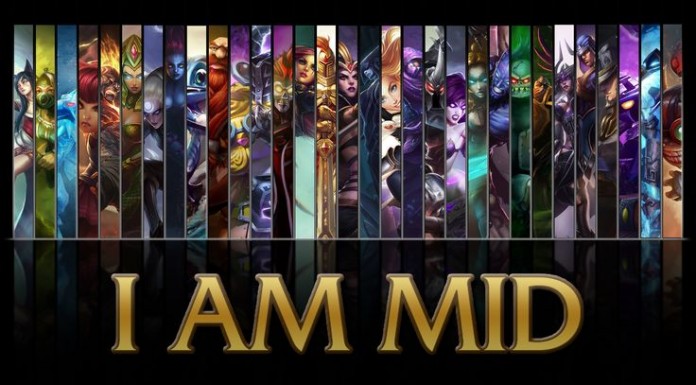This week saw a good portion of North America’s Challenger ladder effectively disappear into thin air. The players didn’t disintegrate, but they might as well have; a whole slew of players were banned for “elo-boosting” (playing on other people’s accounts to raise their rank for money) and also for suspicion or association with the acts.
The bans come shortly after the commencement of the 2016 Summer Challenger Split, actually taking a toll on some of the competitive teams. Notably, Eanix and Dream Team directly had players banned from the game (3 month competitive, permanent account bans) from their starting rosters, Papa Chau and Impactful, respectively. These come as a surprise to the teams, after being originally cleared by Riot to participate within the Challenger scene just days prior.
How It Happened
While Riot has yet to release any major competitive ruling statement or information as to how the proceedings, eSportsEdition’s sources have stated that inside leaks within the boosting group came from the employer himself in order to nullify a ton of unpaid tabs to his boosters.
What is almost for certain is that an internal Skype group and portions of a competitive TeamSpeak server contained a large portion of the banned players. Interestingly, the leaked TS server is run by Cloud9’s general manager, Danan. This password protected server is frequented by a majority of top level players who dabble in the competitive scene, as well as having ‘Competition Rooms” for each of the LCS teams within.

You May Like
Precedent, Inconsistency
This is not the first time that professional players have been banned from the North American League of Legends scene for boosting. In 2015, TiP’s XiaoWeiXiao received a 1 year ban from Riot affiliated leagues for Elo boosting and account sales, which he admitted to.
However, professional players in the past have been dealt much lighter punishments. Riot’s 2013 ruling on LCS players Elo boosting found Dontmashme, Aphromoo, Chuuper, Meteos, NyJackey, Phranq, Rhux, and Xmithie guilty of violating their contract, Terms of Use, and Summoner’s Code by Elo-boosting, however, only received 14-day suspensions of their accounts and removal of season rewards.
Further, ShorterAce of Eanix received a ban, before having the punishment quickly rescinded. Although he did not publicly protest or speak out about the events, this inconsistency alludes to Riot’s preferential treatment of players in the public spotlight, with greater social media presence/crowd influence. Contrarily, Lattman contested the ruling, claiming he did not boost and that the former LCS player was banned for guilt by association with the Skype group.
6 Years Later, Boosting Still Prevalent
For a top level player, it’s nearly impossible to break into the LCS ranks, especially in the long-term. Challenger players are paid minimally by Riot, below even a subsistence wage for playing in the league, as I know first hand, for taking on a full-time job with constant overtime. While some players are turned away to other careers after being denied repeatedly, others have turned to boosting as a means to survive while trying to climb the ranks.
The allure proves to be too much for the majority of the Challenger/Master ladder. A skilled player can easily make over 30$ an hour during peak seasons. Players with rapport who can do higher level jobs can reach six figure salaries on the year if they consistently dedicate themselves to the craft.
Riot’s mission to eradicate this plague has been fruitless thus far. The introduction of Dynamic Queue may have been part of the shift to casual play that undermines the significance of rank to boost customers; in reaction, some companies have turned to ‘Dynamic Boosting’ – playing on smurf accounts with up to 4 customers at a time to reap in immense profits while not technically breaking any rules.
Riot needs to implement a long-term solution to at least mitigate the level of boosting that is taking place, beyond just account and competitive bans. Korea’s League of Legends tying social security numbers to accounts may be one way to address the disregard which boosting players have for their accounts and gaming careers. Hopefully, a competitive ruling with future plans will be released within the next week to clarify questions on the minds of all concerned with amateur talent.
















